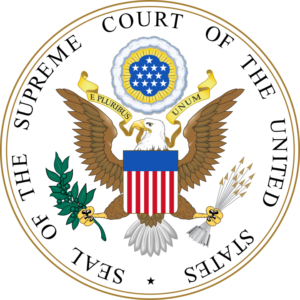I really promise to not turn my blog into “All Parsonage Exclusion All The Time”, but there is one more development in August that has not received much attention. Phil Driscoll is appealing to the Supreme Court. Phil Driscoll could be the poster boy of parsonage exclusion abuse. The ex-convict (income tax evasion) former Blood Sweat and Tears member has a ministry, that does not even purport to be a church. The ministry looks like a record label. The IRS disputed part of his parsonage exclusion, the part that related to his second home, not quite $200,000 in one year, slightly over $400,000 over three years. Phil won in tax court. The argument was that Congress said “home” not “homes” in Section 107, but that in statutory construction just as the male includes the female, the singular includes the plural – in much the same way that “minister of the gospel” includes the occasional rabbi or imam. The IRS appealed and the Eleventh Circuit agreed with the government. I thought it was over. I guess not – kind of amazing
Minister Phillip Driscoll, as his lawyers refer to him, is taking the case to the Supreme Court. The funny thing is that if the Supremes take the case, which I understand is not that likely, he just might win. My constant commenter, Robert Baty, bane of the basketball ministers, managed to get me a copy of the brief and I hate to say it, but there is a really good argument there:
Minister Philip Driscoll received a designated amount of his total reasonable compensation as a housing allowance, which he divided to provide two homes, rather than one, more expensive home. When the relevant statutory language is unclear, does the government have a legitimate interest in requiring a minister’s housing allowance designation to be spent on only a single residence where the government does not claim either the housing allowance designation or the minister’s total compensation are unreasonable?
Well when you put it that way, what is the problem ? If you concede that he is a minister and that his total compensation is reasonable and it was properly designated, what’s wrong with having two big houses rather than one truly enormous house like Kenneth Copleand’s
If allowed to stand, the government’s punitive and paternalistic interpretation of section 107 would unduly punish ministers who provide more than one home to meet their spiritual and practical needs, despite the fact that the designated amount of their housing allowance is otherwise reasonable in accordance with the overall statutory scheme of the Internal Revenue Code.
However, the IRS imposes its own discrimination against a minister who chooses to use that same housing allowance to provide more than one home in accordance with his spiritual or practical needs, despite the fact that the very same housing allowance could be used to provide one, more expensive home with no complaint from the IRS. This interpretation of section 107 encourages ministers to rent or purchase the most expensive home available to them within the limits of their designated housing allowance, or risk losing part of their compensation. And, it prohibits ministers from having more than one home who may benefit practically or spiritually from doing so.
The second part of the argument is weak. A minister who does not spend all her housing allowance on housing does not lose it. She just has to pay income taxes on it.
The number of scenarios under which a minister may choose to use his housing allowance to provide more than one home is limited only by the number of religious tenets held by the many religious organizations in the U.S. It is conceivable, for example, that a minister may have one home for regular use and a second home for use as a spiritual retreat, allowing the minister to reconnect with God and find inspiration for carrying out his ministerial duties.
There are tons of different religions in the United States and we need to respect their different tenets. Some of them might think that God prefers really, really big houses and then there are those where God wants to drop in on the hired help in the city or on the waterfront depending on the season. Lots of different religions all sorts of different housing deals. Makes sense. I read somewhere that Christianity is still big in the United States. Maybe some of them would want to have a house like the one Jesus lived in.
Foxes have holes, and birds of the air nests; but the Son of man hath not where to lay his head.
You can follow me on twitter @peterreillycpa.
Originally published on Forbes.com on September 7th, 2012































































































